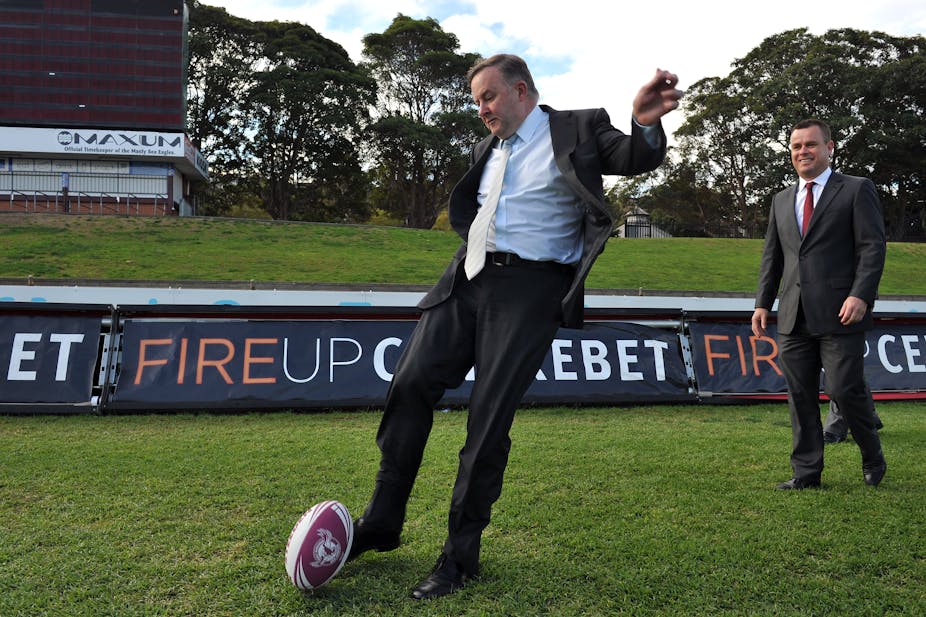The ALP is set to retain deputy prime minister Anthony Albanese’s seat of Grayndler following the Liberal Party’s decision to preference Labor over the Greens in the 2013 election. While the Greens made a strong showing in 2010 with a two-party preferred vote of 45.8%, Albanese’s margin of 4.2% is considerably strengthened by the Greens’ dependence on preferences from the Liberal Party who poll about one-quarter of the primary vote in Grayndler.
Grayndler, a tight little 32 square kilometre bundle of suburbs in Sydney’s inner west, is an area that has undergone waves of change since its establishment post-war. Originally a working-class electorate filled with small, tightly-packed houses, its central suburb of Marrickville was first a centre of post-war southern European immigration, and latterly of Asian settlement in the 1970s and beyond.
The electorate is interesting in that it is a family affair and a haven for deputy leadership. Albanese’s wife Carmel Tebbutt represents the state seat of Marrickville (and is a former deputy premier of NSW), while Linda Burney, the state MP for Canterbury, is the current deputy opposition leader. As such, it has all the hallmarks of a Labor stronghold.
Its status as a former migrant electorate is still clear in that more than half of the electorate had both parents born overseas. However, as the cost of housing continues to increase in the area, this first generation of migrants is being replaced by renovators and young professionals. The current period of extended low interest rates has traction with this group, being a proxy for government economic management.
The electorate has 13% more professionals than the national average, with a corresponding impact on average income and lattes per capita consumed (both well above the national average). This does, however, tend to sit across a gradient from the fashionable east to the more suburban west.
Within the ALP, Albanese is considered to be a good local campaigner, willing to husband his resources carefully to protect his base. Both Albanese and Tebbutt are well recognised figures in the electorate, with a strong local presence and a part of the local school community. ALP investment in schools infrastructure is therefore an area of past performance that Albanese is able to highlight in his campaign.
Interestingly, in flagging his cultural Catholicism recently and yet with a record as a strong supporter of the GLBTI community, Albanese manages to bridge well the considerable differences between the inner city suburbs and the outer ones in Grayndler. He is in a good position to strategically use the recent announcement of prime minister Kevin Rudd of a bill recognising same-sex marriage in the first 100 days of a re-elected Labor government.
The Greens are fielding a strong candidate for the seat, Hall Greenland. Greenland has a background in both community organising and running campaigns against high-rise development. This is an issue that mobilises his party base, while running up against a general push by the state government to allow greater levels of transit-oriented development in response to Sydney’s continuing population pressures.
People in Grayndler are very high public transport users, an issue the Greens have attempted to own. On a similar front, Greenland is also active on the issue of aircraft noise, which will allow him to criticise Albanese’s inability to move the intractable issue of the second Sydney airport while transport minister in the first Rudd government.
In the 2011 NSW state election, Fiona Byrne, the former Greens mayor of Marrickville, was touted as likely to unseat Tebbutt as part of the general rout of state Labor, but ran foul of the party’s support for the pro-Palestinian Boycott, Divestment and Sanctions campaign against Israel. The seat was the site of concerted illegal campaigning tactics, including unauthorised signs, stickers stating the Greens supported terrorism and accusations of push-polling. The source of these tactics remains unknown.
The Liberals’ candidate for this election is much stronger than their 2010 candidate, Alex Dore - of the controversy surrounding the Liberal Students’ Club of Sydney University fame - in solicitor and university lecturer Cedric Spencer. Spencer’s campaign appears to largely be focused on mirroring the national campaign themes, though he has an established presence in the community through his volunteering.
The votes that Spencer pulls in will primarily support the ALP and Albanese. This will place the seat outside of the Greens’ reach in 2013.

